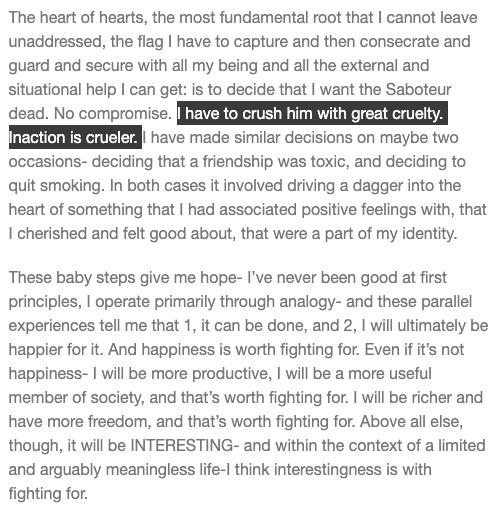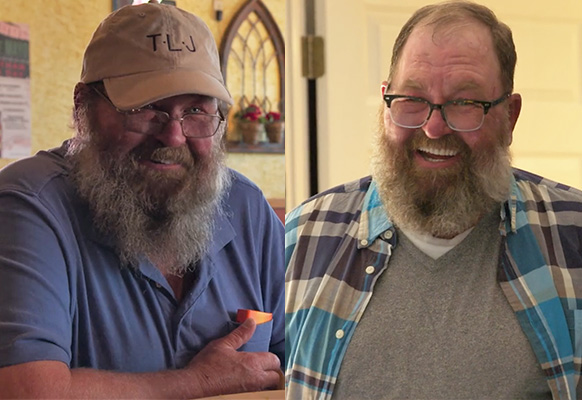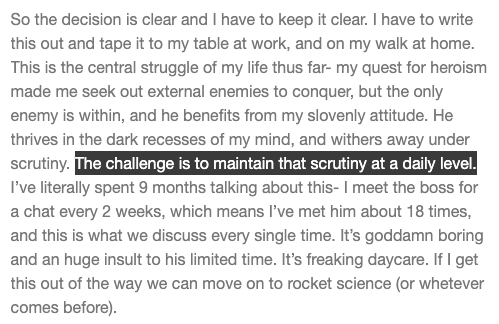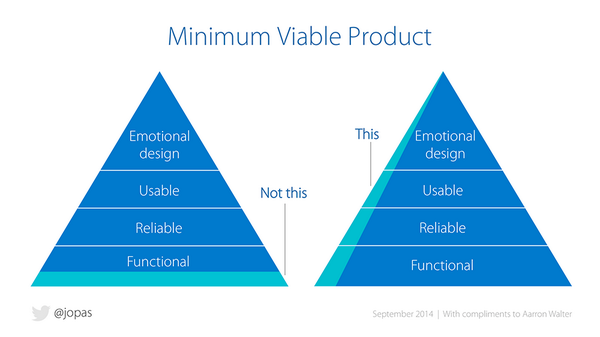Visakan Veerasamy @visakanv 2020-10-04
the words we use to describe ourselves have a way of becoming self-reinforcing. I used to often casually describe myself as “broke”, and if I tried to do the math I think it might have cost me something like… oh gosh, I don’t want to think about it… it might exceed 6 figures
this class of “word magic” has a certain “range”. It has to operate within your own range of believability. I don’t think it’ll work if you’re currently “skinny” and you describe yourself as “muscular” when you’re not. That degrades the value of your words
2019-09-11
you can ask the world for more than you have, but you cannot really ask for more than *you* truly believe you deserve
the magic encoded in “be true to your word”, “keep your word”, “be a man/woman of your word” is very old and very powerful https://x.com/visakanv/status/327713353017462785?s=21…
via second-order effects. A powerful thing about social reality is the powerful idea “people like us do things like this”. people who self-identify as broke, for eg, go on to self-regulate their behavior by avoiding dissonant contexts, ideas, people
2020-10-04
Why’d it cost you? Do you mean directly?
I have to be careful: I don’t mean to say “you can stop being broke by deciding to stop calling yourself broke! it’s that simple!” it’s not. it’s the start of the journey, which involves tinkering and changing literally every single facet of your identity
i bought the glasses on the left when I was a soldier, around 2011 or so. they were the cheapest, durable glasses I could find. I kept using them until late 2017, when I *finally* bought a nice pair. I could’ve afforded to buy a nice new pair by mid2013. but I didn’t, cuz “broke”
wearing cheap “soldier glasses” (basically a pair you wouldn’t mind damaging or losing) made me feel… cheap myself. like I didn’t own anything of value, anything worth taking good care of. If you watch Queer Eye (I only really watched the first season) I think they convey this
it’s not abt the superficial frills, or being some kind of slick salesman shyster (though you *could* take it in that direction if you wanted… ew). it’s about your genuine self-image, your self-concept, and where/how you direct yourself.
“People like me do things like this”
over the years I’ve started to get really very sensitive to the words people use. in a sense we really are all casting spells all the time, which control the overton windows of our self-perception. and this is a multiplayer coop game, we do it together!
2020-08-06
until I listened to Alan Watts (around 2015), my attempts at improving myself, fixing my personal issues, etc were compromised by the language of coercion. I made my best effort to be some kind of authoritarian dictator over myself. I made “progress”, and fell into a depression

now – this is the part people love to hear – this extends all the way to your coping mechanisms, your jokes, and so on. In fact, I’d argue that the things you say when you’re “not serious”, when you’re drunk, etc etc… they represent you even more accurately than your “resume”
I don’t mean *literally*. This is “vibe” territory. Dreamscape stuff. Mythology! It doesn’t have to make literal sense, just like how dreams don’t. It’s more about, what do you get upset about? What do you get angry about, before you say haha jk?
re “the overton window of self-perception” – this is why the most effective way to do behavior change I.M.H.O. is to figure out something you can do that will change your *identity*, even by a tiny bit
“People Like Us Do Things Like This”
2014-11-23
1/ It’s very interesting and useful I think to apply the MVP model of product development to personal development.


